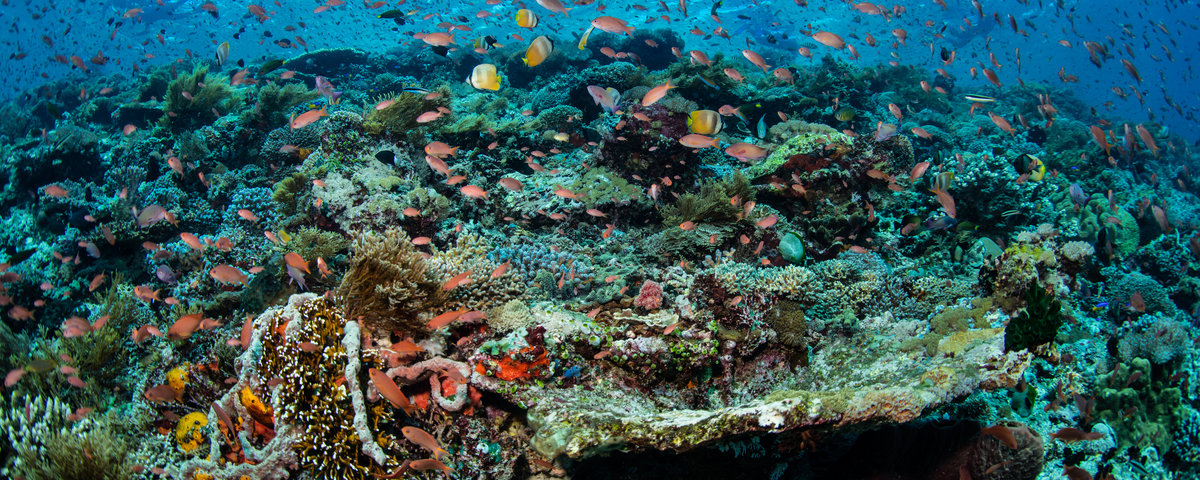After a week of virtual events organised by UNDP on Nature for Life, reminding us of how important nature is to achieving the Sustainable Development Goals, the UN Biodiversity Summit takes place on September 30th.
The Summit will highlight the crisis facing humanity – from the degradation of biodiversity to the urgent need to accelerate action on biodiversity for sustainable development. It will provide an opportunity for Heads of State, Government and other leaders to raise their ambitions for the development of the post-2020 global biodiversity framework to be adopted at the 15th Conference of Parties to the Convention on Biological Diversity (COP15) in 2021.
Noting that over half of the world’s GDP ($44 trillion of economic value) is at moderate or severe risk due to nature loss (WEF), the past week also saw 560 companies across the world calling for policies to reverse nature loss and committing to action (Business for Nature). In addition, 26 financial institutions from 10 countries have launched a finance for biodiversity pledge, committing to positive contributions for biodiversity by 2024. This builds momentum for biodiversity as we approach COP15 and the Decade for Action.
What can tourism do to contribute to meeting this challenge?
Biodiversity loss and climate change are the twin existential challenges that we face as humanity. The responsible recovery of the travel and tourism sector after the COVID-19 pandemic requires that we address these challenges, while also ensuring tourism contributes to reducing poverty and deprivation. This is a challenging agenda for change.
Biodiversity is declining faster than at any time in human history. Around one million animal and plant species are now threatened with extinction. The accelerating rate of species loss, combined with the rapid loss of nature’s material and non-material contributions to people’s livelihoods, render this crisis at least as pressing a global priority as climate change and health pandemics.
Natural habitats, wildlife and rare species are important parts of the tourism sector; national parks, reserves and other protected areas (terrestrial and marine) are major generators of revenue for tourism businesses. Tourism makes a positive contribution to maintaining biodiversity through entrance fees: by building emotional bonds between visitors and nature, by creating livelihood benefits for the communities which live with wildlife, and discouraging poaching in conservation areas through the presence of touristic activities.
But tourism has negative impacts too. Tourists sometimes purchase illegal wildlife products, cruise ships spread alien and invasive species, and over-crowding disturbs wildlife. The sector puts pressure on habitats through poorly planned developments and land use, over-exploitation, waste disposal and pollution.
The World Tourism Forum Lucerne and WTM Responsible Tourism believe that true stewardship is not only about zero impact or mitigating impact, but also extending to having a positive impact – economic, social and ecological.
WTM London
At WTM London at 14:00 on November 10th, Shaun Vorster will be moderating a panel on these issues. The Responsible Tourism programme this year at WTM is online, so you will not need to travel to London to join us. This will be a lively panel exploring what the industry can do to halt the loss and ensure positive social and environmental footprints.
Tourism and Biodiversity: Friend or Foe
Biodiversity is declining faster than at any time in human history. Biodiversity loss is one of two inextricably linked existential crises which confront us. Post COVID-19, how can we reset tourism’s relationships with nature to contribute positively to conservation and contribute more significantly to the livelihoods of the communities who bear the opportunity costs of maintaining the wildlife and other species that the tourism industry sells? Tourism is also heavily dependent on the ecosystem services provided by nature – food, water and energy.
WTFL and WTM Responsible Tourism believe that stewardship is not only about zero impact or mitigating impact; it must also be about making a positive contribution – economic, social and ecological. This round table discussion will focus on the positive steps the sector can take to make a substantial contribution to the conservation of biodiversity. We shall look at how tourism compares with other industries and at what policymakers, accommodation providers, tour operators and guides can do to take responsibility for ensuring that tourism makes a positive contribution to the maintenance of biodiversity.
Online now, you can find a host of interviews with leading figures from travel and tourism, scientists and conservationists sharing their ideas about how tourism can contribute to halting the biodiversity crisis.
Professor Harold Goodwin – WTM Responsible Tourism Advisor
Dr Shaun Vorster – World Tourism Forum Lucerne, Advisory Board
You may also be interested in…
- Rewiring the world economy
- How are biodiversity loss and human disease affecting tourism?
- Which trends should guide tourism’s recovery?



how amazing, this place is so wonderful and your blog is also nice, thanks for sharing this experience…